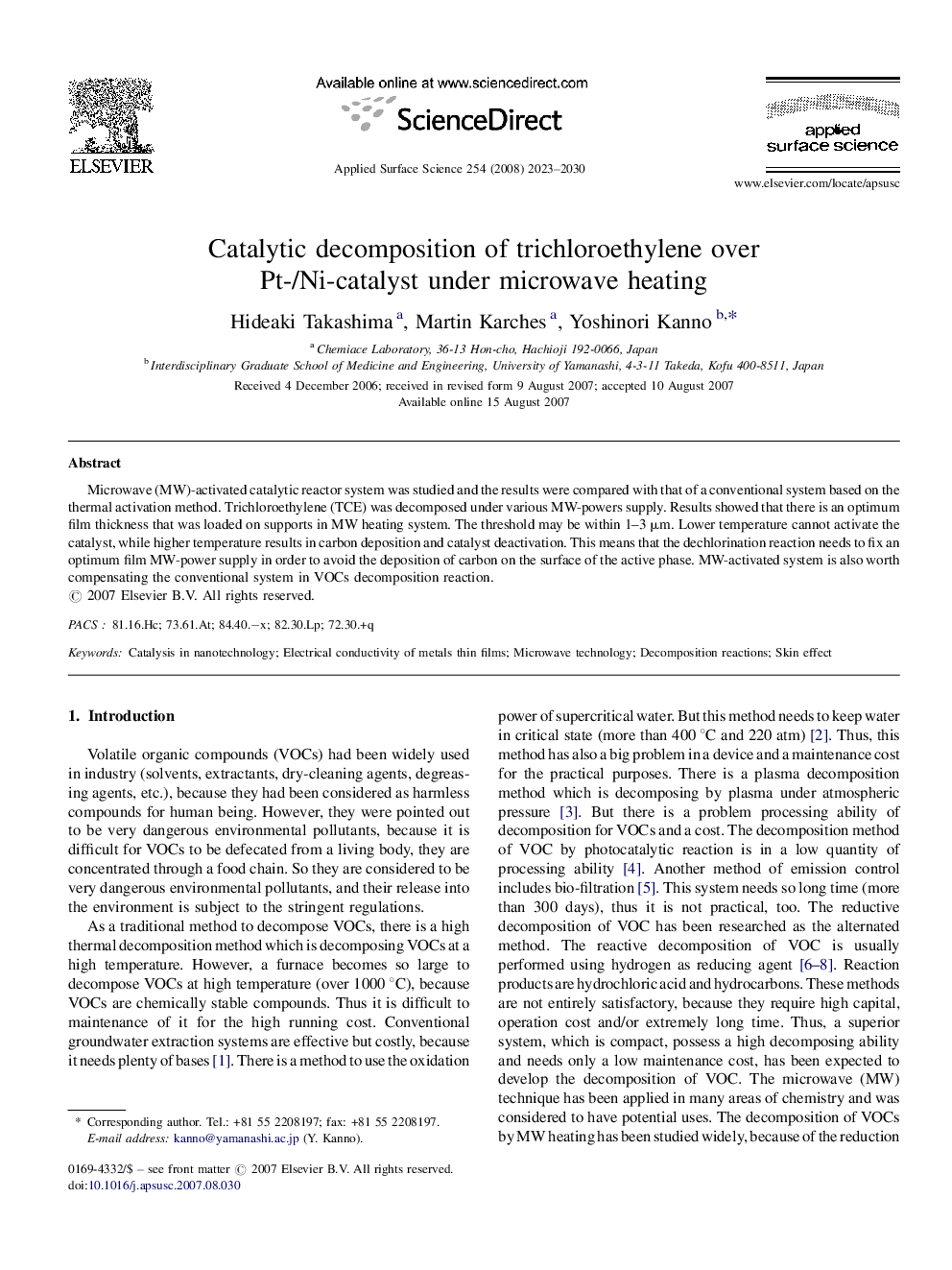| Article ID | Journal | Published Year | Pages | File Type |
|---|---|---|---|---|
| 5366133 | Applied Surface Science | 2008 | 8 Pages |
Microwave (MW)-activated catalytic reactor system was studied and the results were compared with that of a conventional system based on the thermal activation method. Trichloroethylene (TCE) was decomposed under various MW-powers supply. Results showed that there is an optimum film thickness that was loaded on supports in MW heating system. The threshold may be within 1-3 μm. Lower temperature cannot activate the catalyst, while higher temperature results in carbon deposition and catalyst deactivation. This means that the dechlorination reaction needs to fix an optimum film MW-power supply in order to avoid the deposition of carbon on the surface of the active phase. MW-activated system is also worth compensating the conventional system in VOCs decomposition reaction.
